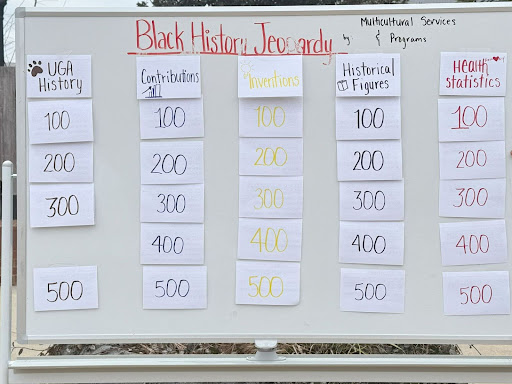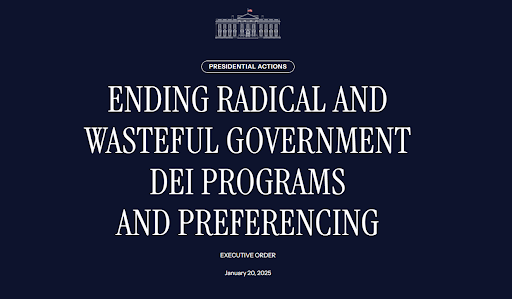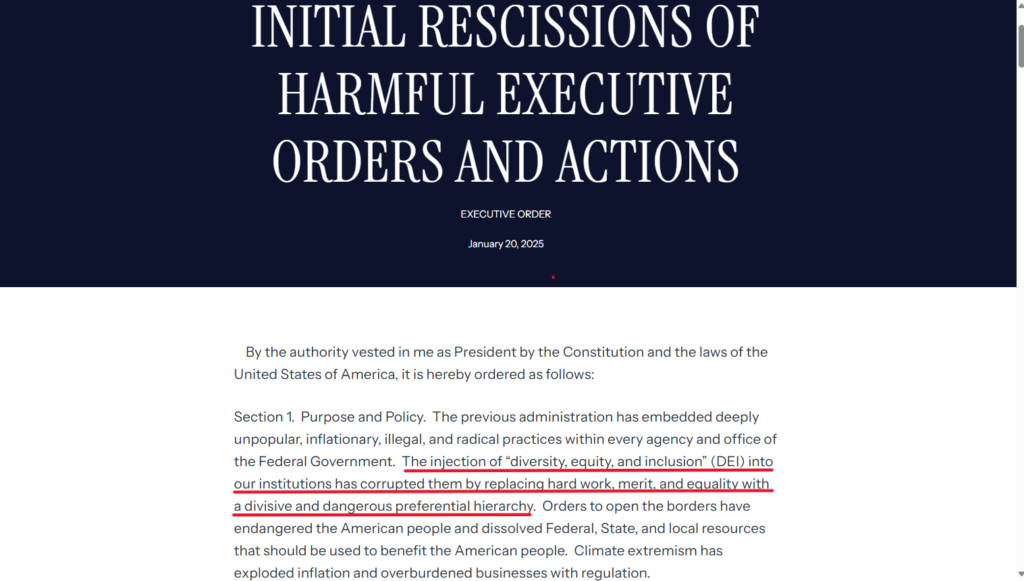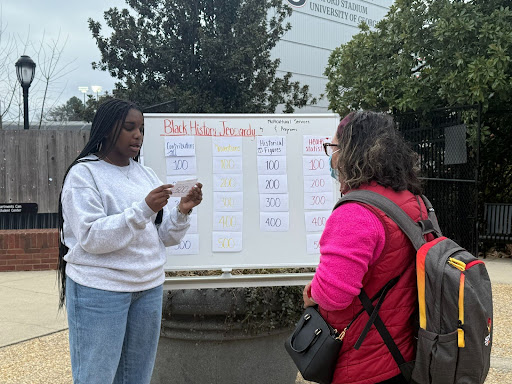Black students at the University of Georgia are voicing concerns over what they believe is the recent weaponization of diversity, equity and inclusion (DEI) initiatives by the Trump administration and the division it has created.
I think DEI has taken a really dark turn, in terms of how it’s been described by the media and the administration as a whole,” first-year UGA law student Fatime Niane said.
February is Black History Month and this year, it took place just three weeks into Trump’s presidency. UGA’s Multicultural Services and Programs hosted a Black Heritage Celebration at Tate Plaza.
For students like second-year Kennedy Doucet, despite the challenges from the Trump administration, she chose to focus on the positive.
“Having this month I feel like is really just going to be great for us to hone in on the joy and the beauties of the culture, rather than being forced to fixate on negative stereotypes that are often pushed upon us,” Doucet said.


New Anti-DEI Executive Orders
On his first day in office, President Donald Trump signed several executive orders, including one “terminating radical DEI preferencing in federal contracting and directing federal agencies to relentlessly combat private sector discrimination,” according to the White House website.

A U.S. District Judge Adam Abelson followed these executive orders with a preliminary injunction blocking the eradication of government support for DEI-related programs.
This comes after decades of precedent set by the Civil Rights Act of 1964, which prohibits employment discrimination based on race, color, religion, sex and national origin.
Conversations about DEI started in the 1960s during the height of the Civil Rights Movement.
DEI became a political flashpoint more recently, after calls for racial justice increased during the 2020 Black Lives Matter protests following the murder of George Floyd.

Strong Political Rhetoric and Division
For some Black students, the second Trump administration’s anti-DEI rhetoric and actions are creating strong partisan divides. Fatime Niane, a first-year UGA law student, discussed her view of how the first Trump administration divided the country, and she said it continues now.
I feel like it was just so many different pieces of legislation and policies that were supported by him that I think divided our country, made it more polarizing, made it more partisan, and made the political atmosphere not feel as comfortable,” Niane said.
This division is also reflected at a local level, particularly on UGA’s campus.
On Oct. 22, 2024, Charlie Kirk, an American conservative political activist, visited the university as a part of his “You’re Being Brainwashed Tour.”
According to his organization’s website, this tour was meant to challenge left-wing indoctrination on college campuses. It created discomfort for some Black students.
“The Charlie Kirk rally on Tate Plaza, my roommate and I went to that, just because we wanted to see what kind of things they were talking about,” Coleson Bowen said. “And we went, and I’ve never felt so disconnected from a group of people in my entire life.”
UGA’s status as a predominantly white institution (PWI), with more than 60% of the student body identifying as white and only about 6% as Black, amplifies feelings of isolation among students of color, like Bowen.
Impact on Future Careers
Niane talked about her goal to work in criminal justice system reform, which heavily impacts marginalized communities, but believes the anti-DEI policies will affect her future and the people she wants to help.
“Going into my career path, I can only assume it’s going to become a situation where people, like attorneys, who are working with the prosecutor or defense office, would assume and say things like, ‘Oh you’re only here because you’re a Black person,’” Niane said.
Bowen, a freshman aspiring to enter politics, expressed similar concerns about future professional challenges.
“I think once I really want to break into the realm of politics, that’s when it’ll begin to affect me,” Bowen said. “And it’s just sad that I’m going to have to push myself more and more compared to other people, where they’re just kind of handed that position. There’s no more safeguards around me and what I want to do.”
Reflecting on Community Building
Students also reflected on the importance of finding a community within Black organizations at UGA.
Black Affairs Council, BAC, is one of several student organizations dedicated to fostering community and celebrating Black culture at UGA.
Being president of BAC is really a privilege. I love being able to uplift our community,” Millen Tekie said.
Tekie uses her platform to help serve the needs of Black students through programming, social, academic and political events and community service initiatives.
Bowen credited this community for supporting him and his professional aspirations.
“Through BAC and through the freshman advisory board, it just gave me insight on what it’s like to be successful as a Black man, because we don’t have that many role models in our world,” he said.
He noted that his experience with this organization has been enlightening and many Black students want to push through, reach their fullest potential and “just mean something in this world.”
Shweta Krishnan is a junior majoring in journalism and political science at the University of Georgia.









Show Comments (3)